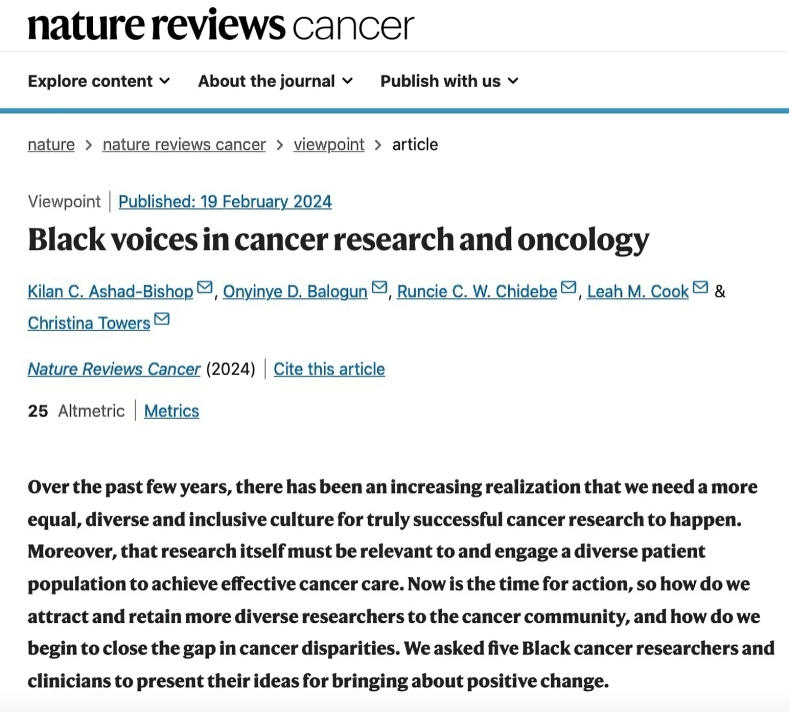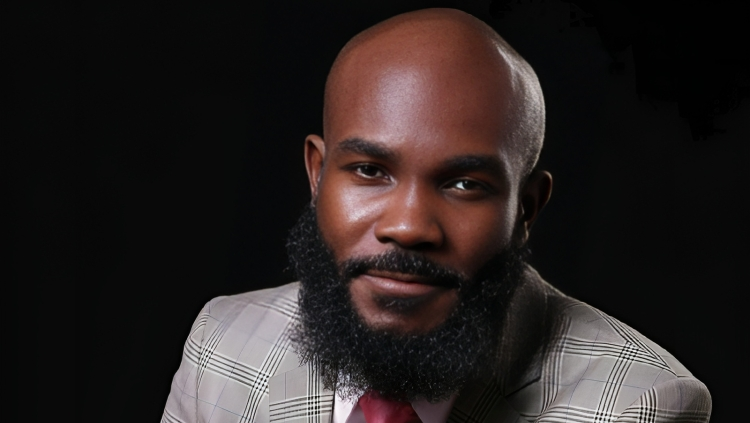Runcie Chidebe, Executive Director at Project PINK BLUE, recently posted on LinkedIn:
“I am so excited to share my first viewpoint on Nature Reviews Cancer.
We argue as follows:
1. Black men are more likely to develop prostate cancer, their tumors are more likely to progress to become metastatic and they are more likely to die of the disease, yet only 5% of Black patients with prostate cancer were included in clinical trials over the past 20 years, whereas over 96% were white.
2. Diversity, equity, and inclusion have become the catchwords for getting funded for oncology research and many health projects. Just like underserved, disadvantaged, impoverished, deprived, under-representation, and many others. On this premise, we now have non-Black scholars and scientists leading oncology research projects and interventions for Black populations with their own race and ethnic lenses. You cannot understand the cancer disparities of the Black population more than the Black people and Black scientists.
3. The problem is that many people think that the best way to improve Black representation in oncology and science is to spotlight them during Black History Month. We need to rethink Black representation with an open heart and realize that representation is beneficial to the world and not just a favor to Black people.
4. Black lives will never matter until Black leadership matters. Why? Because leadership has one of the most crucial roles in who lives or dies in the world today. When Black scientists begin to be in oncology leadership positions, then, we will begin to see representation.
5. The stark racial inequities facing Blacks are interrelated to power and leadership. Whether you are Black in Africa, African-American, Afro-Caribbean, Afro-Latin American, or other Black variation anywhere in the world; being Black in cancer research and oncology comes with a lot of burden. The story is the same.
6. Why should a journal publish a manuscript where data were collected from a Black community or African population and yet the authors or the majority of those authors were non-Black? The journal editors have an ethical responsibility to ask questions about DEI.
Click on this link to read the full manuscript.
Please use the comment section to share your feedback.
Special thanks to Nature Reviews Cancer.”

Source: Runcie Chidebe/LinkedIn
